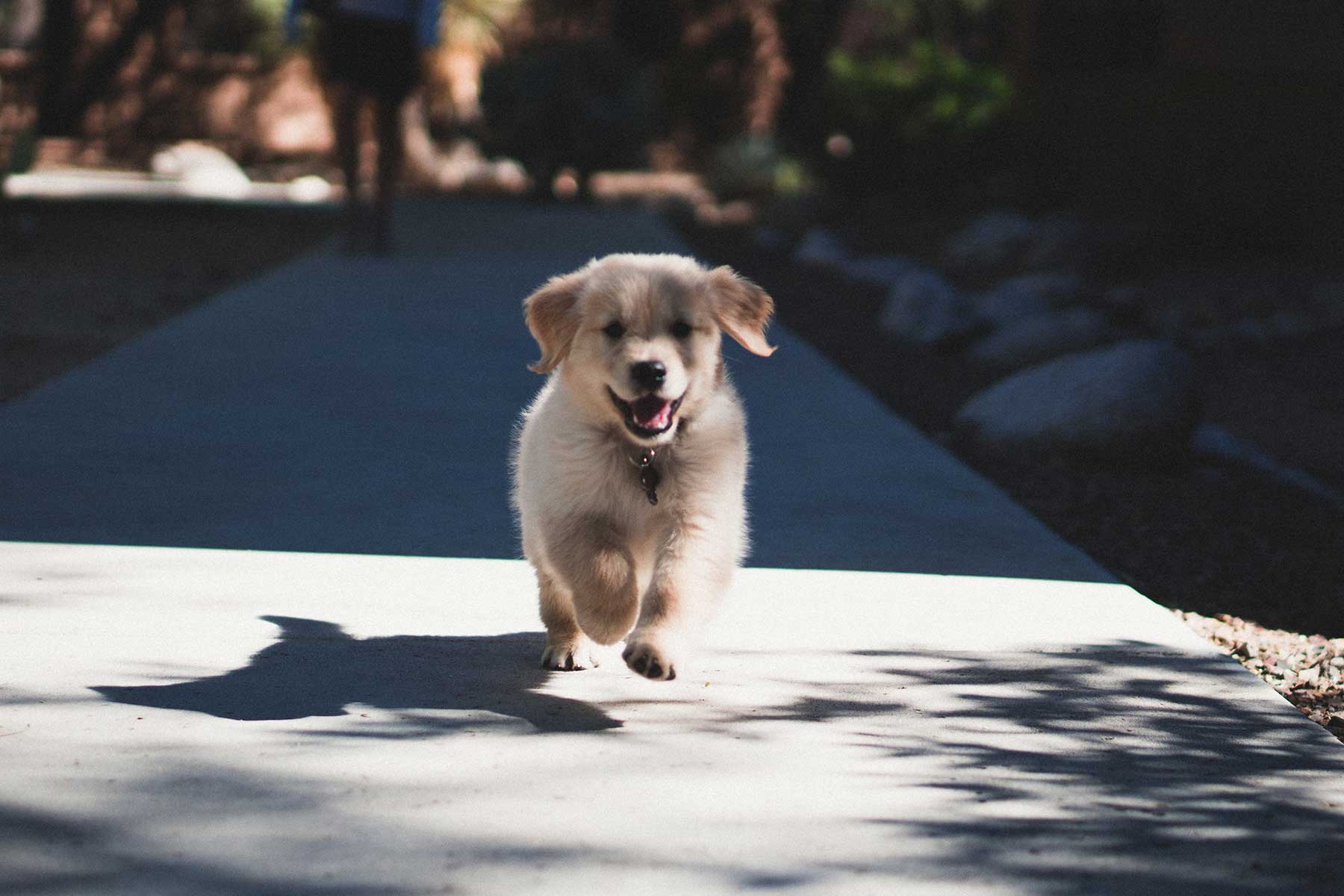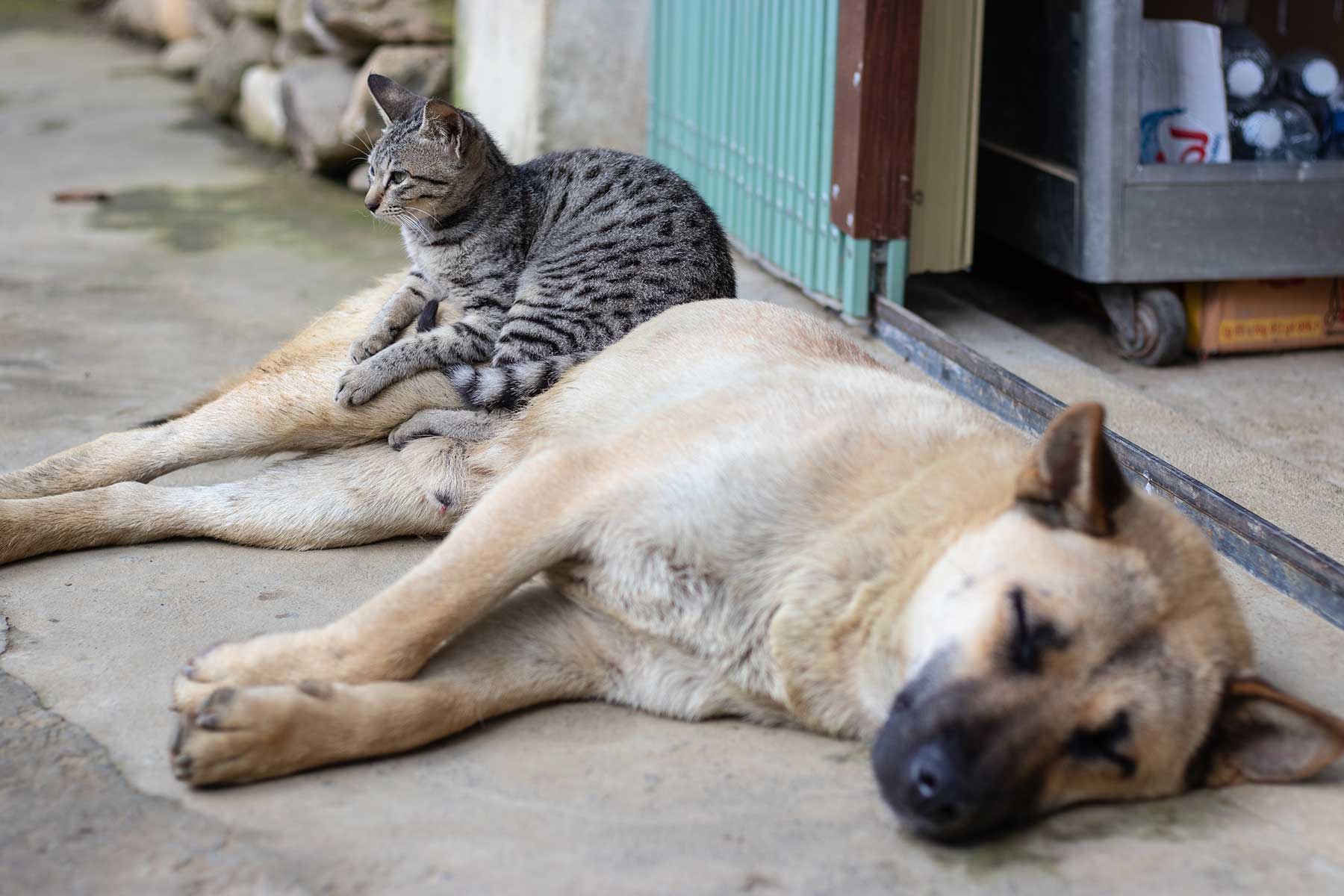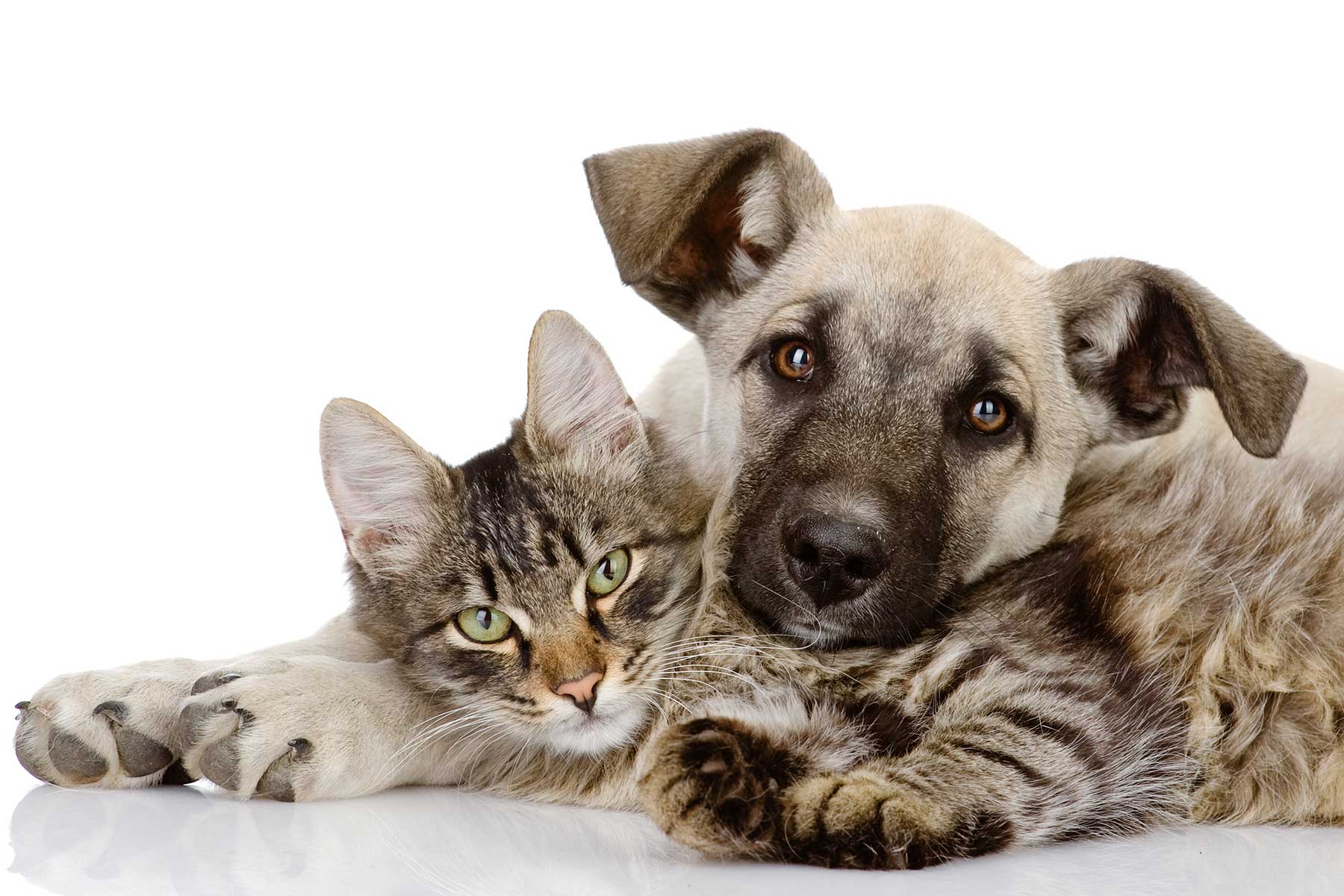A gradual loss of weight in a dog is okay and even beneficial if it is expected or there is an obvious reason for it (such as an increase in exercise or a deliberate change of diet). Unexplained rapid weight loss, however, is a concern and should be checked by your veterinarian as soon as you become aware of it.
For example a loss of 2 kg on an average person over a few weeks is generally insignificant. The same amount of weight on a 20 kg dog equates to 10% of their body weight and may indicate an underlying disease process.
What is a healthy weight range for your dog?
There are some useful charts available that are a helpful guide to know the ideal weight for your pet. Click here to view the ideal bodyweight range for your dog by breed.
Please note: there can be significant variation between genetic lines within each breed and it can be difficult to predict the ideal weight of a cross-bred dog due to the presence of 2 or more breeds in its lineage.
The easiest way to assess your dog’s ideal weight is to follow a few simple steps:
- Regularly run your hands over your dog’s ribs. Can you feel their ribs easily or is there a significant layer of fat over the ribs?
- Observe your dog from above. Can you see a definite waist line or does it blend in to the hips?
- Observe your dog from the side. Can you see a waist line or is there a straight line from the chest to the back legs?
- Weigh your dog at least twice a year (your veterinary clinic will be more than happy for you to use their scales, and we can then record your dog’s weight at the same time)
All of the above aspects are jointly used to determine a ‘body condition score’ (see below diagram). Your veterinary team will be able to advise you on the ideal weight for your dog once the condition score is assessed. As indicated below, the ideal condition score is a 3.

Image supplied by Hill's Prescription Diet ~ Clinical Nutrition to Improve Quality of Life
What should you do if you notice your pet has suddenly lost weight?
As soon as you notice a loss in weight, especially over a short period of time it is important to get your dog checked by your veterinarian.
Some things to think about prior to your visit that may assist your veterinarian in determining the cause of the weight loss include the following questions.
- Has there been any change in your dog’s:
- Appetite (increased or decreased)?
- Drinking habits (increased or decreased)?
- Diet (eg changed brand of food, given any food scraps from the table recently, possibility of eating any foreign objects)?
- Faeces (eg any vomiting or diarrhoea)?
- Urination (increased frequency or any difficulty in urinating)?
- Behaviour (eg lethargic, sleepy, restless or hyperactive)?
- Mobility (eg difficulty in walking or getting up after resting)?
- Breathing (eg coughing or wheezing)?
2. When did you first notice the weight loss?
3. Has your dog had access to any toxins?
It is also helpful to know what medications your dog is receiving in regards to the prevention and control of intestinal worms, fleas and heartworm.
Your veterinarian will perform a thorough physical examination of your dog. From the clinical examination and history, a plan can then be formulated for the next step in the diagnostic process. Often a blood, urine or stool sample may be collected to assess your pet’s internal organs and general health.
Depending on the condition of your pet and the results from any initial diagnostic tests, further treatment and/or tests may be recommended. This could include admission into hospital for intravenous fluids and appropriate medical treatment, and further diagnostic tests such as radiography and/or ultrasonography.
What are some of the causes of rapid weight loss?
Apart from weight loss due to dehydration, rapid weight loss also occurs when your dog has a negative caloric balance. This means that the body is not receiving the necessary calories it needs to maintain a normal weight range. There are several conditions that could cause this including:
- Reduced appetite or intake of calories for some reason (eg severe dental disease can be painful and may prevent your pet from wanting to eat or chew)
- Reduced absorption of calories from the intestine (eg Inflammatory bowel disease can damage the intestinal wall and prevent calories being absorbed into the blood stream)
- Reduced ability to utilise calories due to an underlying medical condition (eg Diabetes Mellitus results in a lack of insulin which means the body is unable to absorb glucose from the blood stream)
- Increased loss of calories (eg vomiting or diarrhoea, renal disease)
- Increased requirement of calories (eg neoplasia)
The examples given are not an exhaustive list of diseases or problems causing rapid weight loss. Your vet will be able to give you more appropriate information and relevant treatment protocols once they have examined your dog and performed the appropriate diagnostic tests.
There are many reasons why a dog can lose weight rapidly so it is important that you take your dog to the vet as soon as you notice unexplained weight loss, as some of these conditions may be serious but many can also be treated successfully, especially if detected early.
It is recommended to visit your vet every 6 months once your dog is aged over 7 years old (which is roughly the equivalent of 50 human years). This allows for early detection and treatment of disease processes that may otherwise lead to weight loss and ill health in your dog.











